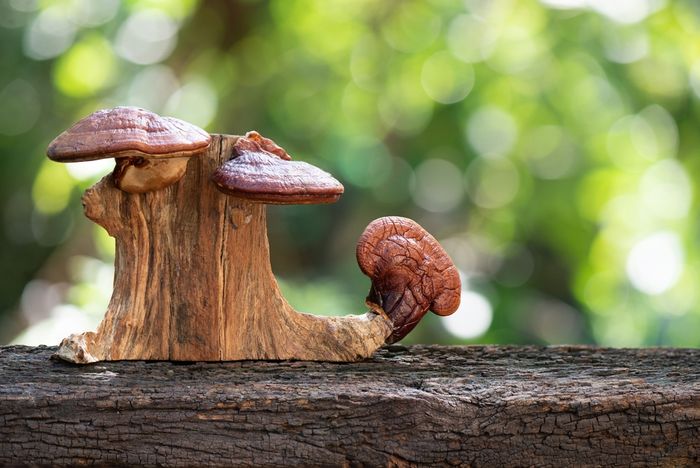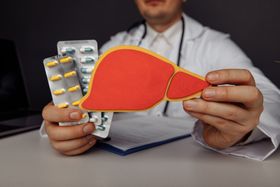Reishi Mushroom for Cancer: Benefits, Treatment, Research, and More
Updated April 14, 2023.

Reishi mushroom—also known as the Mushroom of Immortality or by its scientific name, Ganoderma lucidum—has been used in traditional medicines for thousands of years. Although the supposed list of benefits is quite extensive, this article looks specifically at using Reishi mushrooms for cancer, how it can help, and the research to back the claims.
For a complete list of Reishi mushroom benefits, read The Benefits and Side Effects of Reishi Mushrooms.
How Does Reishi Mushroom Benefit Cancer?
Reishi is one of the many functional mushroom species that seem to have cancer-fighting properties. Research has noted that there numerous ways that mushroom supplements can assist in cancer treatment, such as the following:
- Mitotic inhibition Mitotic kinase inhibitors are a type of drug that inhibits mitosis, essentially stopping cell growth and shrinking tumours, which can also reduce the proliferation of cancer cells.
- Cell apoptosis "Apoptosis" is a fancy term for "cell death." The studies looking at Reishi as a cancer treatment usually found that in-vitro tests (performed outside of a living organism) of Reishi extracts caused the death of cancer cells at a rate that prevented them from proliferating.
- Immunomodulation Functional mushrooms are known for boosting the immune system, but they may actually be immunomodulatory instead of simply immune-boosting. This means that they may assist the immune system in identifying where it needs to operate instead of simply increasing the activity of immune cells, which can assist the body in dealing with cancer cells.
- Chemoprotection One of the undervalued benefits of Reishi mushrooms for cancer treatment is their ability to reduce the adverse symptoms of chemotherapy, such as nausea. Studies have noted the ways that Reishi mushrooms can improve the quality of life of cancer patients undergoing chemotherapy.
The abovelisted benefits to cancer treatments suggest that Reishi mushrooms are better used alongside other cancer treatments instead of as a standalone treatment.
Which Cancers Can Reishi Mushroom Benefit?
Asking what kind of cancers a particular mushroom can treat is a bit of a loaded question as it isn't exactly a linear process. While there may be a possibility that certain mushrooms are more adept at killing certain types of cancer cells, there simply aren't enough clinical studies to draw conclusive correllations.
That being said, existing positive studies about the effects of Reishi on cancer have been carried out on the following types of cancer:
- Bone marrow (myeloid leukemia) and liver
- Prostate
- Colon (both benign and advanced cancers)
- Carcinoma cells (skin and the lining of organs)
- Breast
- Lung
How to Use Reishi Mushroom for Cancer
Reishi mushrooms come in many different forms and ways of consuming, and so various factors need to be considered, such as the following:
- Best time to take Reishi Although a popular question, there simply isn't a best time for taking Reishi. Adaptogenic functional mushrooms like Reishi offer their benefits after repeated use for an extended period, and so it's consistency that matters, not time of day.
- Optimal dosage of Reishi Like the best time of day—but for different reasons—there simply isn't an optimal dosage for Reishi as it depends on a variety of physiological factors and the severity of your condition. The best that anyone can do is to extrapolate from the doses used in existing studies.
- How to consume Reishi mushrooms Currently, the different ways that Reishi mushrooms can be utilized are whole (fresh and dried), powdered, in topical creams and lotions, in teas, or extracted into tinctures and other similar products. All have their benefits, but tinctures applied sublingually have the best balance of bioavailability (the amount of a substance your body can use) and the time it takes for the substance to be absorbed into your bloodstream.
Best Reishi-Containing Products
Although Reishi seems to work wonders on its own, it may work better when taken in conjunction with other functional mushrooms (such as cancer-fighting Turkey Tail), other therapeutic and powerful components like non-psychoactive cannabidiol (CBD), and more.
To learn more about how these combinations can help you, read about our patented M2CBD formula or head directly to our online store to browse our selection of tinctures, topicals, sprays, and tablets designed to help with various mental and physical conditions.
Risks of Using Reishi Mushroom for Cancer
Despite the promising benefits offered by Reishi, it is not totally without risk. Although rare, the mushrooms do carry a risk of the following side effects:
- Dizziness
- Dry mouth
- Itching
- Nausea and upset stomach
- Rash
Furthermore, there is still debate surrounding the immune-boosting vs immunomodulating properties of Reishi, which might put individuals with autoimmune disorders at elevated risk alongside the following people:
- Those with bleeding disorders
- Those with low blood pressure
- Those expecting surgery soon
- Pregnant or breastfeeding mothers
As such, it is important to always check with your doctor before supplementing your diet with any additional supplements intended to treat dangerous conditions like cancer.







